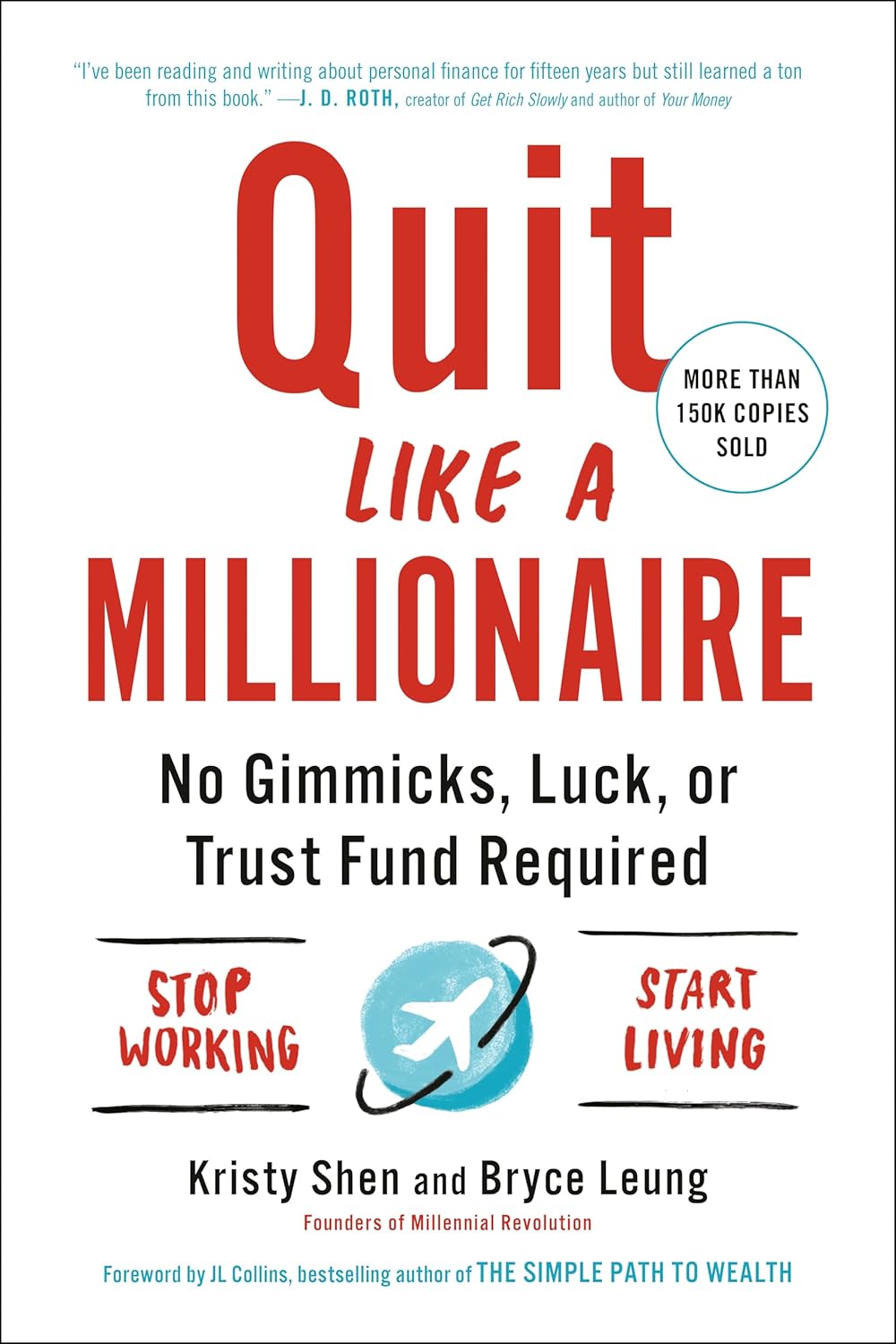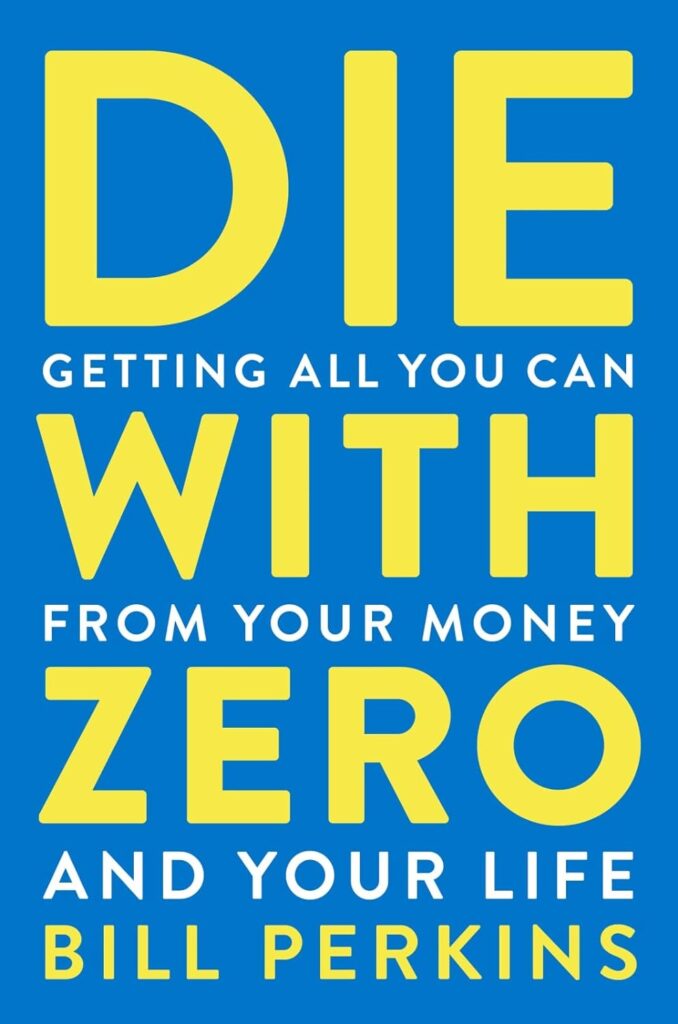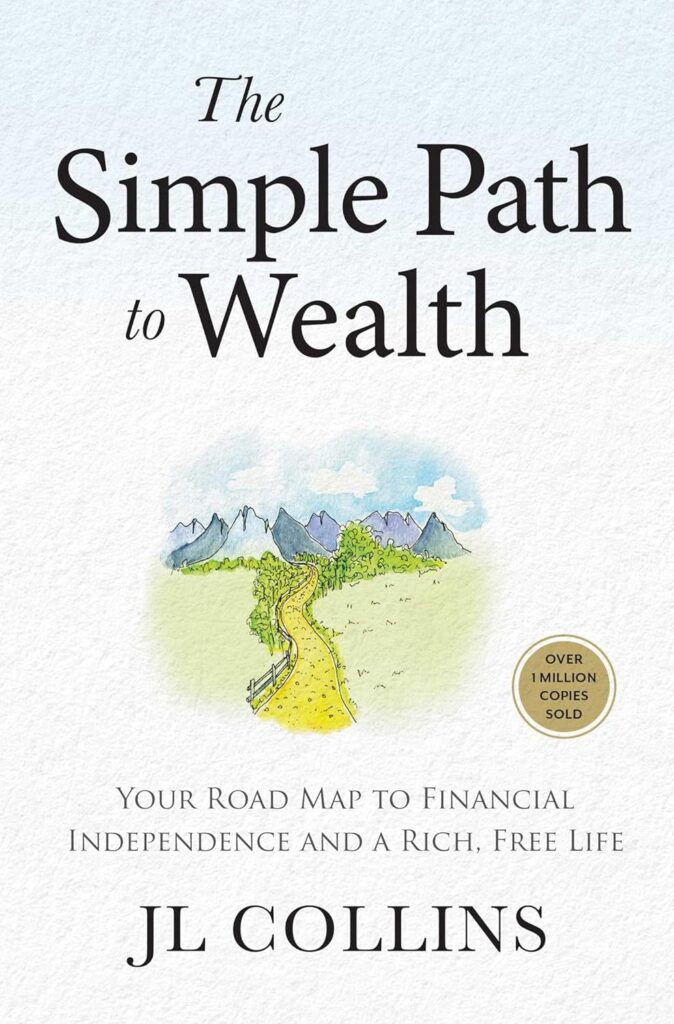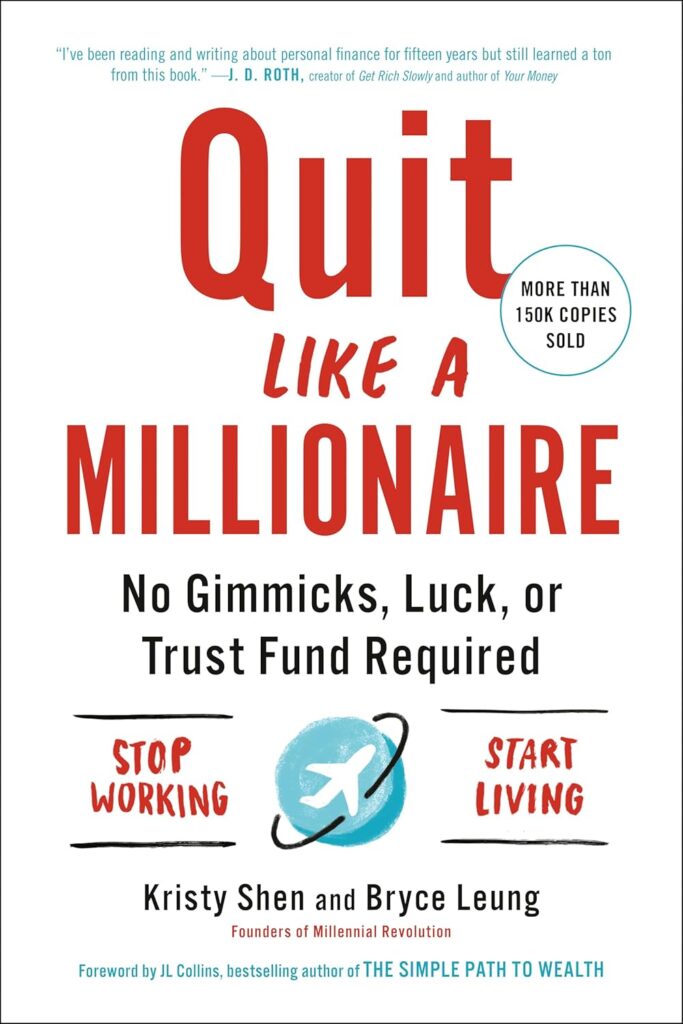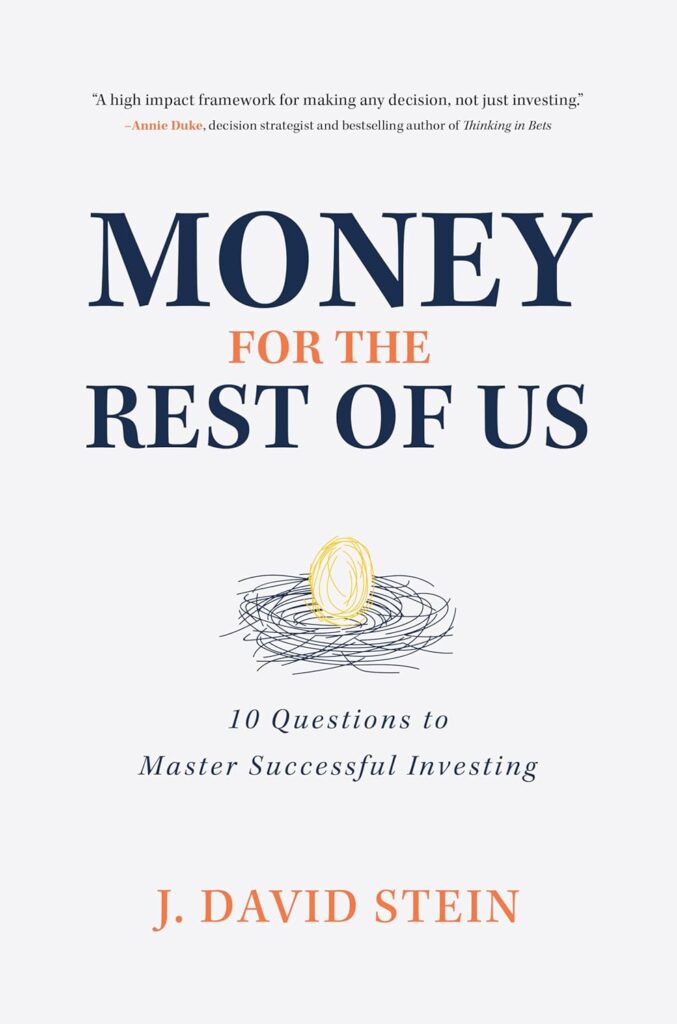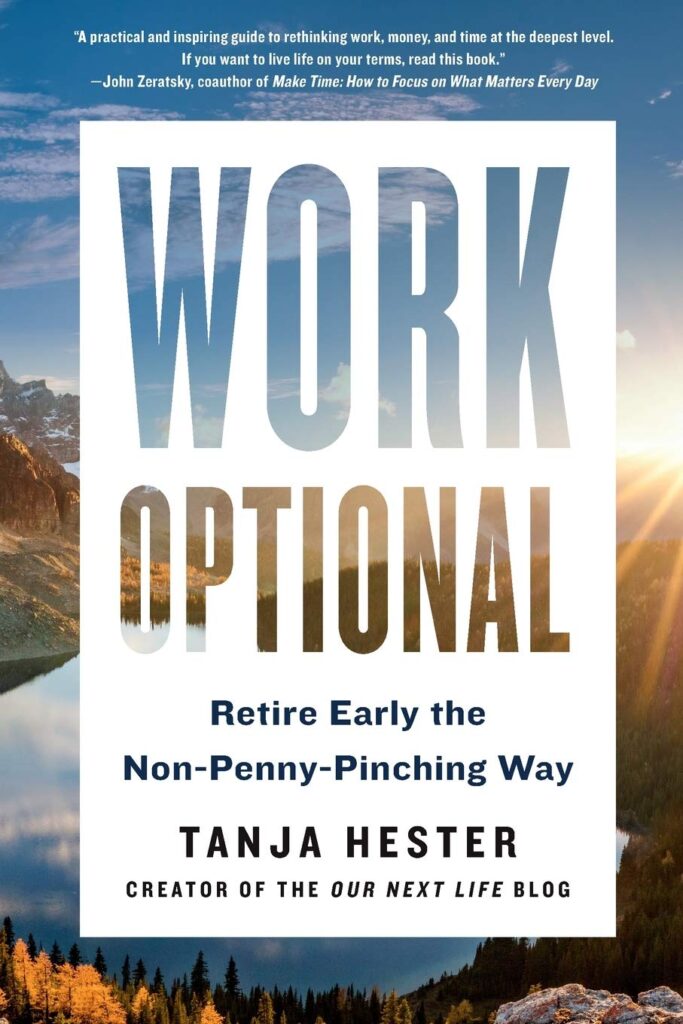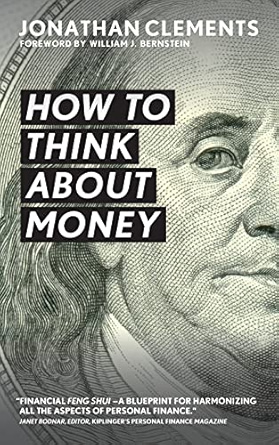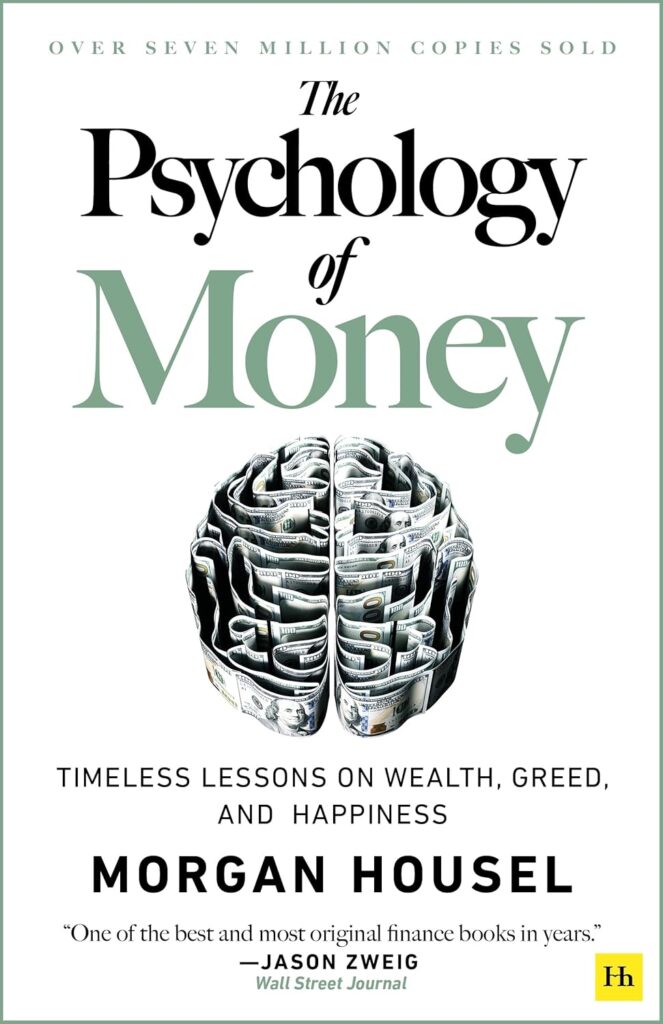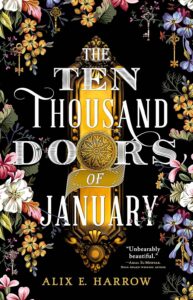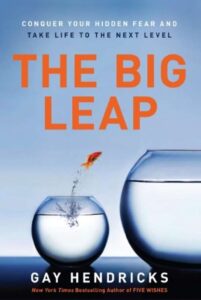Hey friend, If you’re reading this, chances are you’ve felt it too, that little voice inside nudging you toward something more than the 9-to-5 grind. Maybe you’re not dreaming of sipping margaritas on a beach at 35 (though no judgment if you are), but you are craving the freedom to choose. Freedom to work if you want to, travel when you like, or just spend more time doing the things that light you up.
Retiring young isn’t just about hitting some arbitrary number in your bank account. It’s about living intentionally, building smart financial habits, and understanding how money really works, beyond what school ever taught us.
Sure, you’ve probably heard of Rich Dad Poor Dad, The Millionaire Next Door, and Your Money or Your Life and those are classics for a reason. But today, let’s go deeper. Let’s talk about the hidden gems. The books that don’t make every top 10 list but are ridiculously helpful if your goal is to break free early. Let’s dive into 7 underrated financial books that will help you retire young—the smart way. Find more books to read on these posts.
7 Seriously Underrated Financial Books You Need to Read If You Want to Retire Young.
1. “Die With Zero” by Bill Perkins
Genre: Financial Philosophy / Lifestyle Design
This book flipped my entire approach to money on its head. Bill Perkins, a hedge fund manager turned lifestyle thinker, makes the bold case that we shouldn’t just save money for the sake of saving, it should be used intentionally to create a life rich in experiences now.
Instead of hoarding wealth for a distant someday, Die With Zero shows you how to optimize your life for fulfillment, factoring in health, age, time, and energy. It’s not anti-saving, it’s pro-living wisely and not postponing joy until it’s too late.
Key takeaway: Your goal shouldn’t be to die with a mountain of money. It should be to invest in experiences that enrich your life while you’re still young enough to enjoy them.
2. “The Simple Path to Wealth” by JL Collins
Genre: Investing / Financial Independence
Okay, this one almost borders on popular but still, it’s nowhere near as mainstream as it should be.
JL Collins originally wrote this book as a letter to his daughter, explaining how to grow wealth simply and stress-free. The beauty? He cuts through the noise of Wall Street and offers a straightforward path to financial independence using low-cost index funds.
His tone is friendly, his advice is timeless, and his strategy? Practical AF.
Key takeaway: You don’t need a finance degree or a flashy investment portfolio. With consistency and simplicity, you can build massive wealth—and peace of mind.
3. “Quit Like a Millionaire” by Kristy Shen & Bryce Leung
Genre: FIRE Movement / Early Retirement Strategy
Ever heard of someone who retired at 31 without winning the lottery? Kristy Shen did it and she breaks it all down in this deeply personal, highly actionable book.
Unlike many financial books, Quit Like a Millionaire isn’t written by someone who started wealthy. Kristy grew up in poverty in China, moved to Canada, and bootstrapped her way to millionaire status using clever saving, frugal living, and smart investing.
This is one of the most diverse, practical, and no-BS FIRE books out there.
Key takeaway: You can build wealth from any starting point, if you’re willing to learn the rules and play the long game.
4. “Money for the Rest of Us” by J. David Stein
Genre: Personal Finance / Investment Education
Based on the popular podcast of the same name, this book is a deep dive into how money works, beyond just budgeting or investing tips. David Stein explores the big-picture economics, how money flows, why inflation matters, how investment markets behave—and does it in a way that’s surprisingly readable.
What I love most? He empowers you to become your own financial adviser. Not with gimmicks, but with contextual wisdom.
Key takeaway: True financial independence isn’t just about growing your money, it’s about understanding it on a macro and micro level.
5. “Work Optional” by Tanja Hester
Genre: Lifestyle Design / FIRE / Personal Values
Tanja Hester, creator of the Our Next Life blog, is a FIRE trailblazer and Work Optional is her blueprint for building a life where work is truly optional.
But this isn’t just another how to retire-early book. Tanja brings a deeply thoughtful, values-driven lens to the conversation. She helps you map out what you actually want out of life, then shows how to build the financial systems to support it.
Key takeaway: Financial independence should be purpose-driven. It’s not just about quitting your job—it’s about designing your best life, aligned with your deepest values.
6. “How to Think About Money” by Jonathan Clements
Genre: Behavioral Finance / Philosophy of Wealth
Think of this book as the love child between a finance guide and a life manual.
Jonathan Clements, a former Wall Street Journal columnist, explores how our mindset around money affects our decisions, happiness, and freedom. It’s full of bite-sized wisdom, psychology insights, and practical takeaways.
He doesn’t just tell you how to save, he tells you why we chase money, what actually brings joy, and how to avoid the trap of forever more.
Key takeaway: Understanding the psychology of money is just as important as mastering the math of it.
7. “The Psychology of Money” by Morgan Housel
Genre: Behavioral Economics / Personal Finance
Yes, this one’s gained more traction lately, but it still flies under the radar compared to bigger names and let me tell you: it’s pure gold.
In a series of thought provoking essays, Morgan Housel explores the weird, irrational ways we relate to money. He makes a powerful case that behavior beats spreadsheets and that mastering your emotions, not just your accounts, is the real key to wealth.
If you’re serious about retiring young, you need to get your money mindset right. This book is a masterclass in exactly that.
Key takeaway: Wealth is not what you see, it’s what you don’t spend. And how you behave matters more than how much you earn.
Final Thoughts: It’s Not Just About the Money
Retiring young doesn’t mean escaping life, it means leaning into it, on your own terms.
These 7 books offer way more than savings plans and investment strategies. They offer perspective shifts. They challenge you to ask:
– What does freedom look like to me?
– How can I live intentionally, not just someday, but now?
– What’s my money for, really?
Financial independence isn’t just for finance bros or tech startup stars. It’s for anyone willing to think differently, spend wisely, and invest with purpose.
You don’t need to read 50 books this year. Just start with one from this list. Let it light a fire under your goals. Let it show you what’s possible.
Got an underrated finance book you swear by? Drop it in the comments. Here’s to retiring young and living rich.

